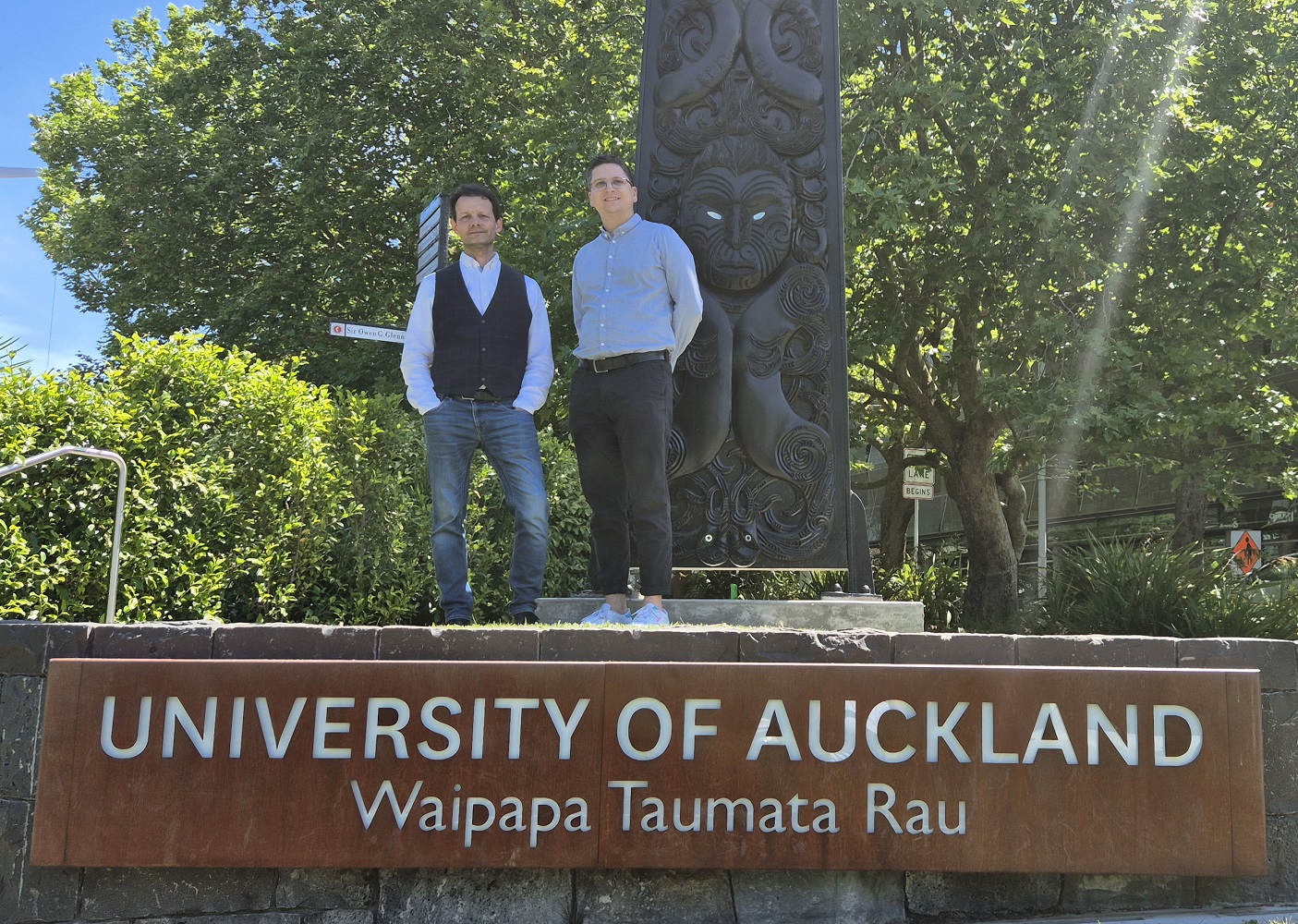News #05
Fraunhofer ISE and The University of Auckland cooperate on artificial intelligence in battery research
The Fraunhofer Institute for Solar Energy Systems ISE and the University of Auckland in New Zealand have signed an agreement to collaborate on AI-based data analysis. The two research institutes want to establish a long-term cooperation that brings together their complementary expertise. Important fields of application are the quality assurance of battery cells and intelligent battery production. Initial exchanges and the joint supervision of students have already begun.
The University of Auckland is an interesting partner for Fraunhofer ISE because it has Associate Professor Andreas Kempa-Liehr, a proven expert in the analysis of time series data, in its ranks. “At Fraunhofer ISE, we are constantly producing data in our new battery research center and have the expertise in batteries, so we are looking for strong partners in machine learning and AI-supported analysis and are very pleased about the cooperation with the University of Auckland,” explains Dr. Moritz Kroll, Team Leader Battery Data Science at Fraunhofer ISE, who promoted the cooperation during a research visit in Auckland. The highly sensitive AI-supported analysis methods of the New Zealand partners made it possible to identify new correlations and effects. The first promising results have already been achieved in the non-destructive characterization of battery cells: “By evaluating ultrasound image data, we were able to uncover anomalies.” The processes in battery production can also be controlled more intelligently through the AI-supported evaluation of production data. Among other things, this can reduce production waste.
For the researchers at the University of Auckland, the cooperation with Fraunhofer ISE means access to data for the further development and application of their methodology as well as industrial knowledge about battery production. This enables them to identify new applications for their analytics. “Just like human experts, our algorithms are able to identify arbitrary anomalies. Now, we want to integrate these AI-models into support software for battery experts”.
The focus of the cooperation, which is initially set to run for five years, includes visiting researchers and the joint supervision of students. For example, two students at the University of Auckland in 2024 have already completed research projects on quality assurance in batteries using unsupervised learning approaches, for which they used data from Fraunhofer ISE. In return, Assoc Prof Kempa-Liehr took over the supervision of a doctoral student at Fraunhofer ISE in October 2024. As New Zealand is associated with the Horizon Europe program, joint applications for research projects are also conceivable. The partners also want to work together on publications, patents, conference contributions, and industry workshops in the future.
The University of Auckland is New Zealand's largest university with over 40,000 students, almost 10,000 of whom graduate each year. The Department of Engineering and Biomedical Engineering focuses on the development of mathematical and computational models of complex systems and the use of these models and simulations.

Last modified: